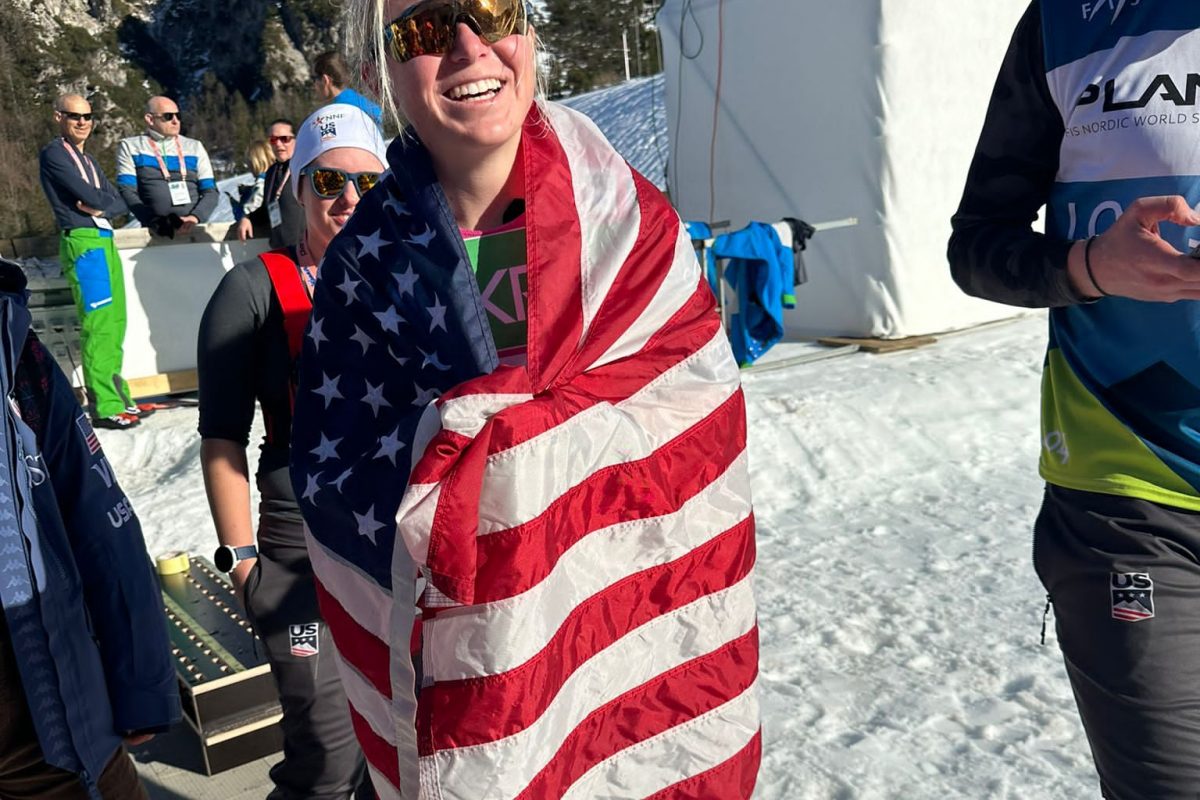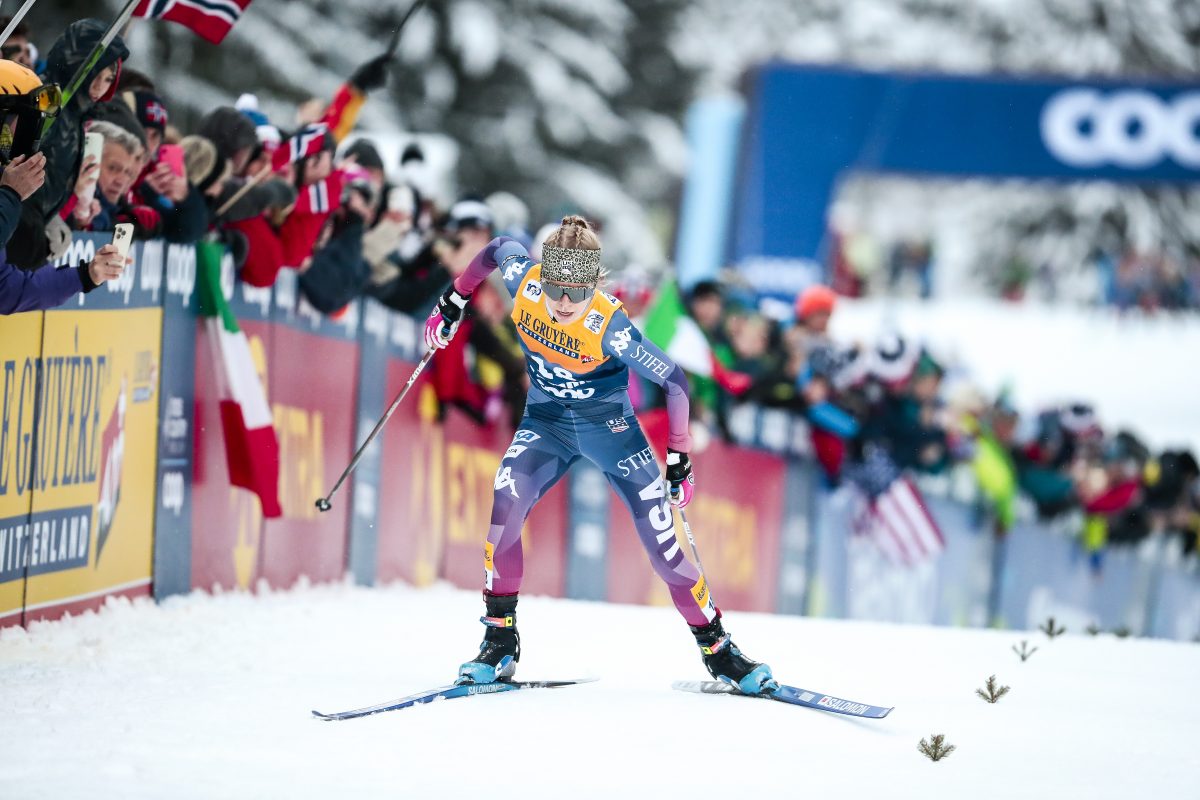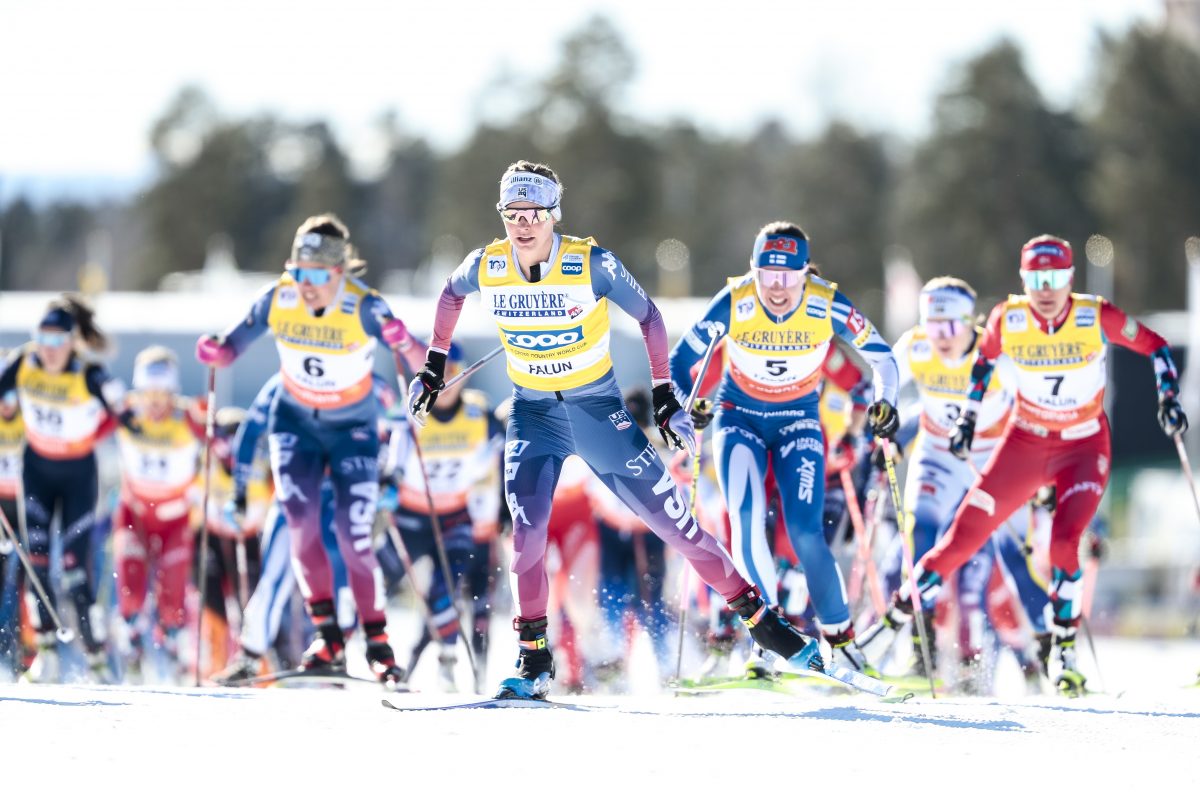
How does a high school student from Massachussetts end up skiing on a glacier with the best athletes from the United States and Canada in the middle of the summer?
The answer is a program, and a promise for other young skiers. Corey Stock, a 17-year-old racer who usually represents the Cambridge Sports Union, was nominated this year to be a member of the National Training Group (NTG), a program of the U.S. Ski Team.
“The NTG is an under-21 step to our cross-country development pipeline,” U.S. Ski Team women’s coach Matt Whitcomb told FasterSkier in an e-mail. “Qualifying and racing at World Juniors qualifies an athlete for the NTG for the following year. Additionally, U.S. Ski Team coaches may select athletes via discretion based on outstanding results.”
Stock missed the first half of last season after getting surgery for compartment syndrome. But once her ski season got going, she picked up an Eastern Cup win and relay gold at Junior Nationals, as well as finishing second to Jessie Diggins, who has since joined the national team, in the distance skate race. While Stock didn’t race in Europe because she missed U.S. Nationals, her results were outstanding in their own right and she was nominated to the NTG.
“The NTG helps identify our best talents and hardest workers as elite skiers, and then provides new and challenging camp and race opportunities,” Whitcomb said. “Being identified as an elite skier is motivating and helps the U.S. retain athletes.”
NTG athletes are not funded by the U.S. Ski Team, but are invited to camps – they are actually required to attend at least one – as well as European Continental Cup trips.
Stock is one of seven athletes currently on the NTG roster. The others are Isabel Caldwell, Anne Hart, and David Sinclair, all of Dartmouth College; Heather Mooney of Stratton Mountain School and Middlebury College; Kinsey Loan of Alaska Pacific University Nordic Ski Club; and Scott Patterson of the University of Vermont.
Only Stock and Loan have attended a U.S. Ski Team camp so far, both traveling to the Eagle Glacier in Alaska for a combined camp with the Canadian national team (which FasterSkier wrote up here). FasterSkier caught up with Stock via e-mail to see what she thought of the experience.
FasterSkier: How did you end up at the camp in Alaska?
Corey Stock: I got to go to the camp because I’m one of the National Training Group athletes. As part of the group, one of the requirements is that you go to one of the U.S. Ski Team camps. Luckily, I was able to make it to the Alaska camp, and it was a really great experience. Kinsey Loan, who is also a member of the National Training Group and is from APU, was there as well. It was really great to get to know her. I’m really glad it worked out.
FS: Before you left, were you intimidated by the idea of training with the U.S. and Canadian national teams?
CS: I was definitely intimidated but I was also really excited to get to know them and to try to be training beside them. I was really nervous, but once I got up there I realized that even though they are amazing skiers, they are great people to be around and they’re just like anyone else.
FS: You’re from New England, where there isn’t snow in the summer. How much did it help you to get on snow this time of year?
CS: It was really exciting to be on snow after a month of dryland training and rollerskiing. It felt relaxing – not only was my whole body relaxed, but also my mind. It was just really fun to be back on snow, and it reminded me of how I’m looking forward to the season.
Just being on snow was really awesome, because I’ve never skied in the summer before.
FS: Is that chance to get on snow going to help your dryland training?
CS: It’s easier, I think, to work on technique on snow. Also, being on the glacier was gorgeous and it was super cool. But it definitely helped my technique.
FS: Which coaches did you get to work with?
CS: It was great because we had a really good coach to athlete ratio. The coaches there were Matt Whitcomb, Chris Grover, and Erik Flora, and Eric de Nys, the Canadian coach. They were all really helpful and it was really cool to get to know them. They were not just helping their own teams, but they were all branching out to everyone, so it was a good atmosphere.
FS: How did the camp fit in with your normal training plan – you obviously have different coaches back home?
CS: It fit right into my training plan because it was obviously hugely beneficial for the actual physical training part, but it’s also great to get a sneak peak into their lives and seeing what the rest of the U.S. and the younger skiers have to look and set our goals towards. I think mentally this camp was just as beneficial as it was for the training.



